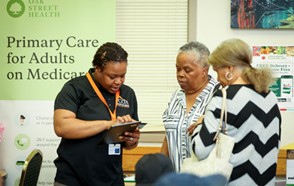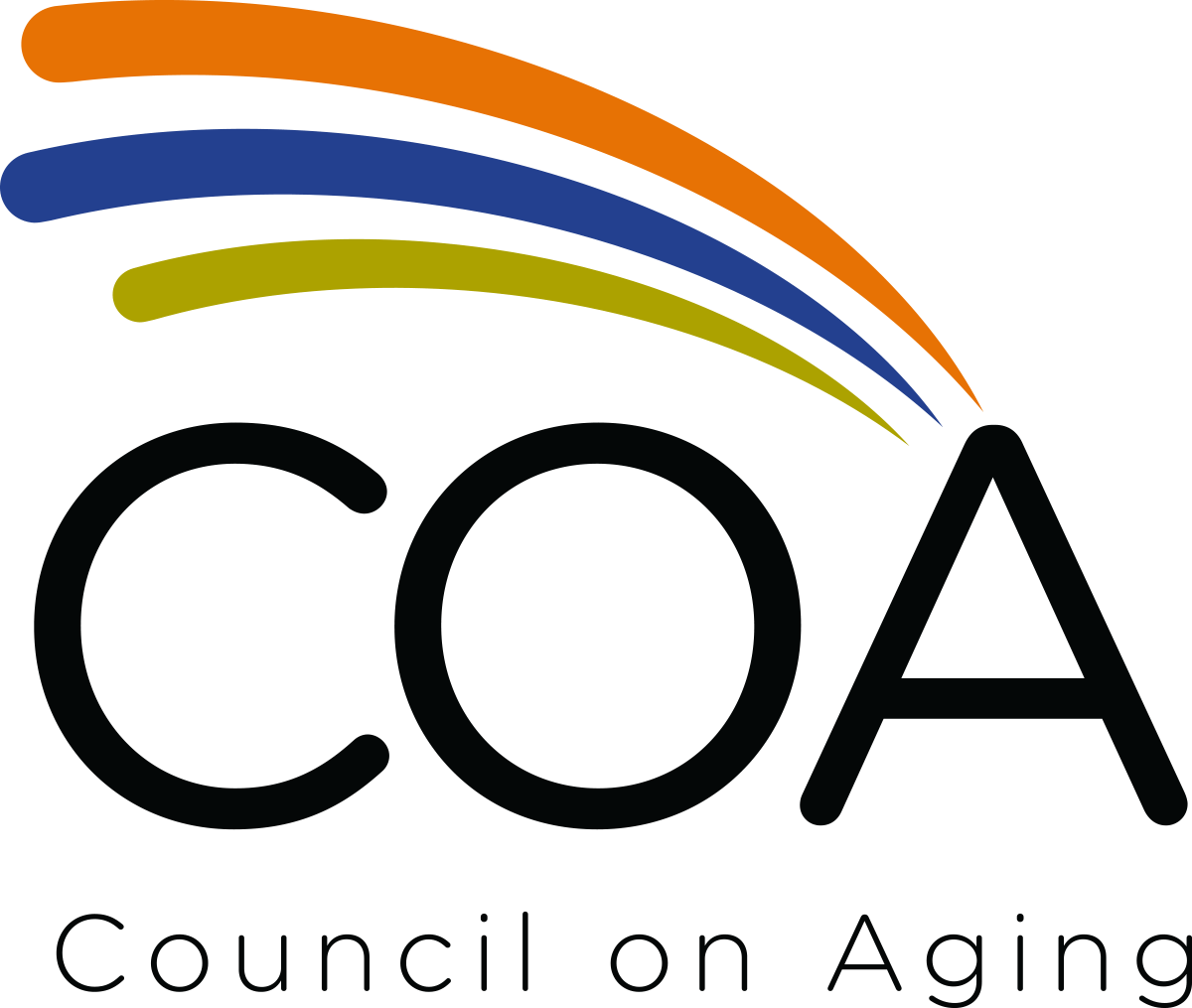News
Council on Aging connects with residents in area low-income senior apartment buildings
August 25, 2024

Council on Aging (COA) staff have been visiting with residents and staff at low-income senior apartment buildings across Hamilton County, sharing information about available programs and services and resources that can have a positive impact on their health and quality of life.
COA Project Manager, Antoinette Moore, has visited more than a dozen buildings in the last year, connecting with more than 200 low-income older adults.
Moore works with building managers to provide information and resources in a way that is convenient and accessible for residents. What works for one building might not work for another. For example, at some buildings, Moore gave a presentation about Council on Aging programs and services. At other buildings, she was accompanied by one of COA’s benefits enrollment specialists who helped residents apply for COA programs or other benefits, including help with Medicare prescription costs, utility assistance and nutrition benefits.
Regardless of the format, residents had time to ask questions, discuss their needs and provide feedback about their existing services.
“I’ve enjoyed building relationships with staff in these communities,” Moore said. “They know they can reach out to me directly and I can be their connection to COA’s programs and services.”
Feedback from building staff and residents has been positive. In an email after one of Moore’s visits, Carla Stokesberry, resident service coordinator for St. Theresa Village in Silverton shared this feedback: “Antoinette, you were amazing! Thank you for serving St. Theresa Village!”
Council on Aging has long served individuals who live in low-income senior apartment buildings through programs such as PASSPORT or the Elderly Services Program, but it was not until the COVID-19 pandemic when COA really began to develop relationships with building staff. During that time, COA provided education and prevention materials, coordinated vaccination clinics at area senior buildings, and hosted virtual town halls to help managers stay abreast of current guidance.
“By visiting these apartment buildings, we can bring our programs and services directly to individuals who might need them, while also building lasting relationships with building staff and owners,” said Judy Eschmann, vice president of community and new business operations at COA. “We can meet someone’s immediate needs and also establish a line of communication for future needs.”
If you would like to schedule a presentation for a senior apartment building or know of a building whose residents would benefit from COA information (in any part of COA’s service area), please contact Antoinette Moore at [email protected].
